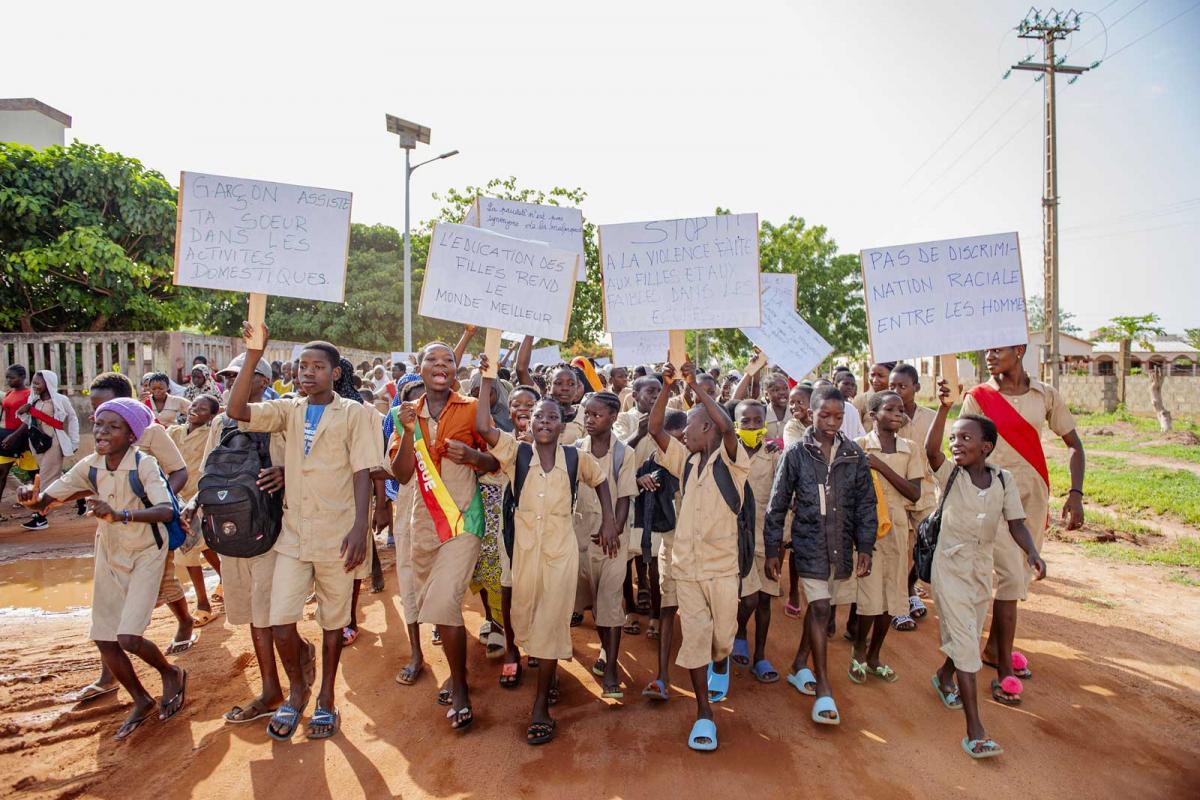
Changemakers in Benin rally for children' rights while walking, dancing and running three kilometers through their village in the Round the Globe for Rights and Change activity.
As changemakers, you and children can share their knowledge and stand up for children’s rights, in their daily lives, at school and at home. Talk to parents and siblings, grandparents and neighbours, even local leaders, about the need to respect children’s and girls’ equal rights. And, of course, you can stay a changemaker for children's rights as you become adults.
Below are examples of what you and your friends can do in different situations and for different people.
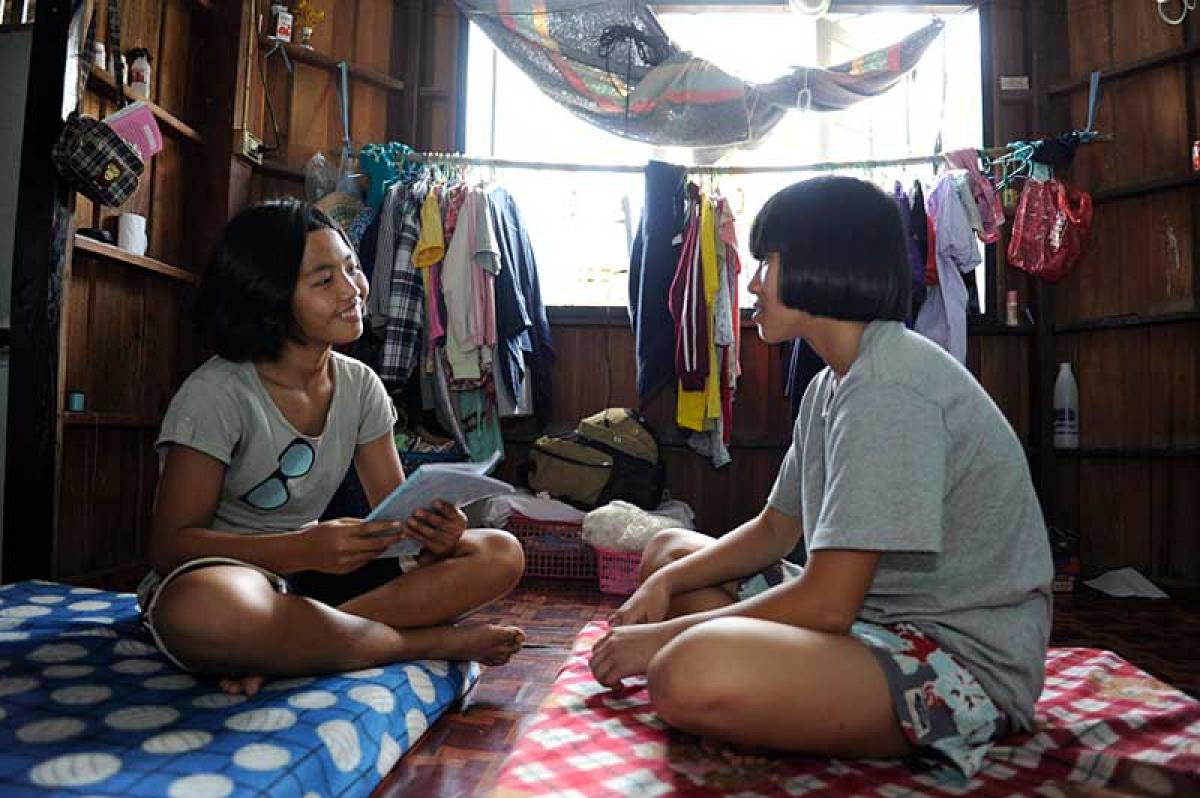
One of the most meaningful actions you can take as a changemaker is to support your friends. Take time to talk to each other, like these refugee girls from Myanmar (Burma) at a shelter in Thailand.
Being a good friend is important when you're a changemaker. If a friend is feeling sad, listen to them and be supportive. Keep their secrets safe, but if they're facing something serious, suggest talking to an adult they trust. While it's good to keep their secrets, their safety is the most important thing. By being there for your friends, you can help them a lot and show others how to be kind.
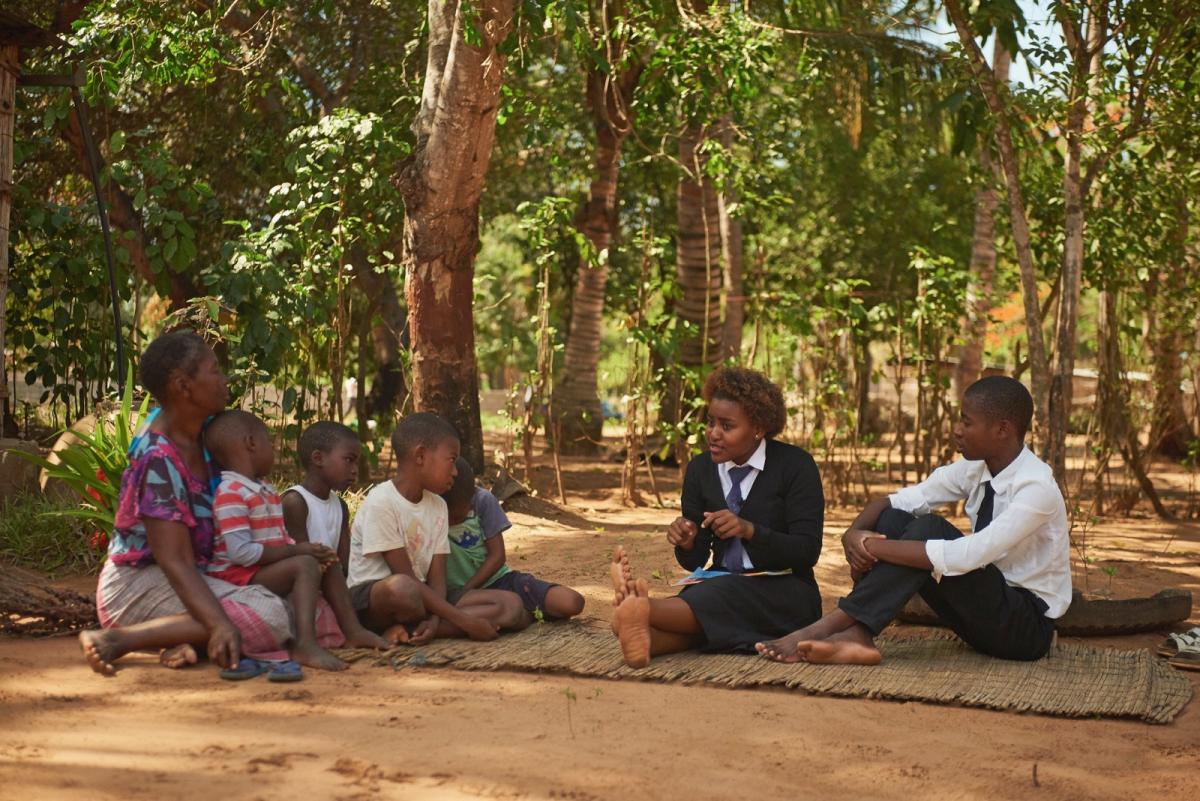
Child Rights Ambassadors in Mozambique talk about children's rights to family and friends.
As changemakers, you can help families in your area. Some families might be going through hard times. You can offer them support and talk about why all children must get treated fairly and go to school. But remember, every family is different, and some might not feel comfortable talking about their problems. Always be careful to respect what the families feel okay sharing.

Girls in South Africa have started a Child Rights Club, they call it "GANG".
You and a group of friends can set up a Child Rights Club to learn more together. Plan fun and useful activities whether it's about supporting friends who have problems at home or girls being forced to leave school etc.. Together, it will be easier to have your voices heard about important things where you live and in your school.
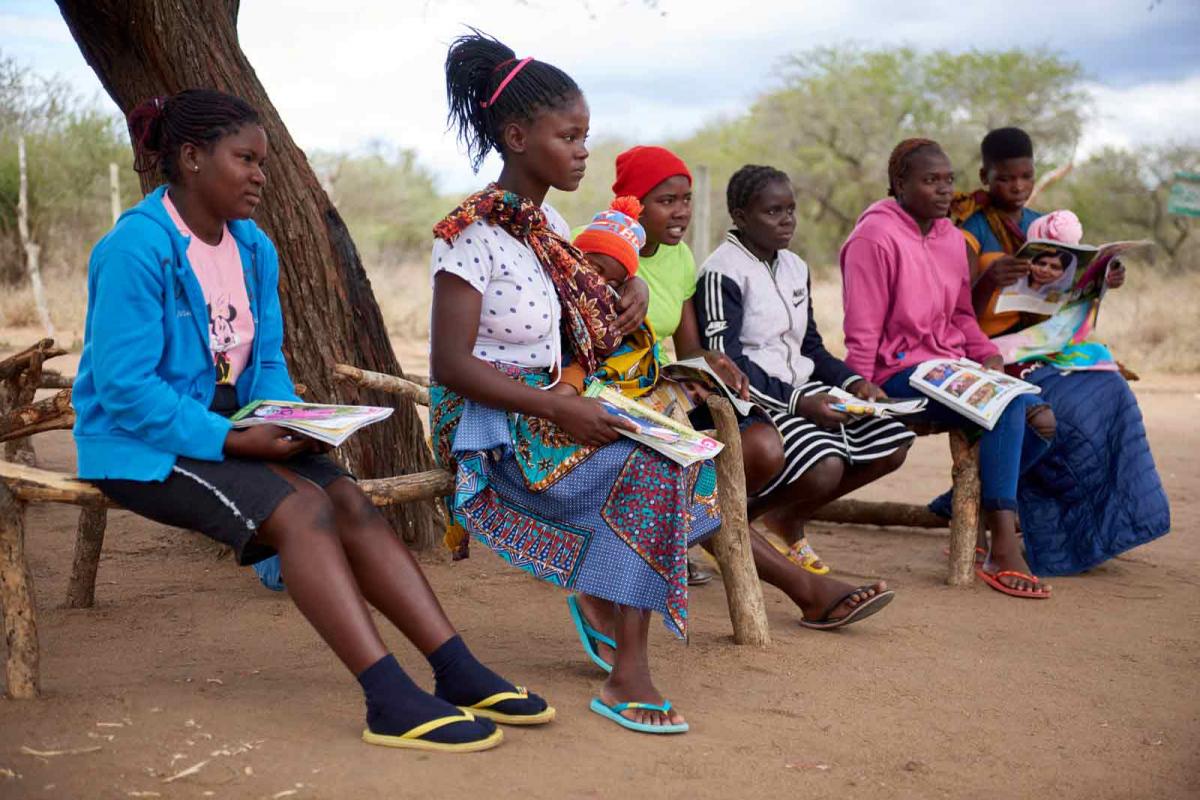
Make an extra effort to support particularly vulnerable groups where you live, such as these teen mothers in Mozambique, who were married off at an early age and had to give up their education and dreams of the future.
As a Child Rights Ambassador and changemaker, you have a special mission to support girls' equal rights. Remember that this is a job for both girls and boys, men and women. Real change and gender equality can only be reached if everybody takes part and works for it to happen. And remember, everybody benefits if a girl completes her education.

Two Child Rights Ambassador in Zimbabwe tell local leaders about children's rights.
Local leaders who support children’s rights and equal rights for girls are important allies and changemakers. By informing local leaders and other local authority figures about children’s rights, you can influence them to do the right thing, and at the same time learn from their experiences and gain their support.
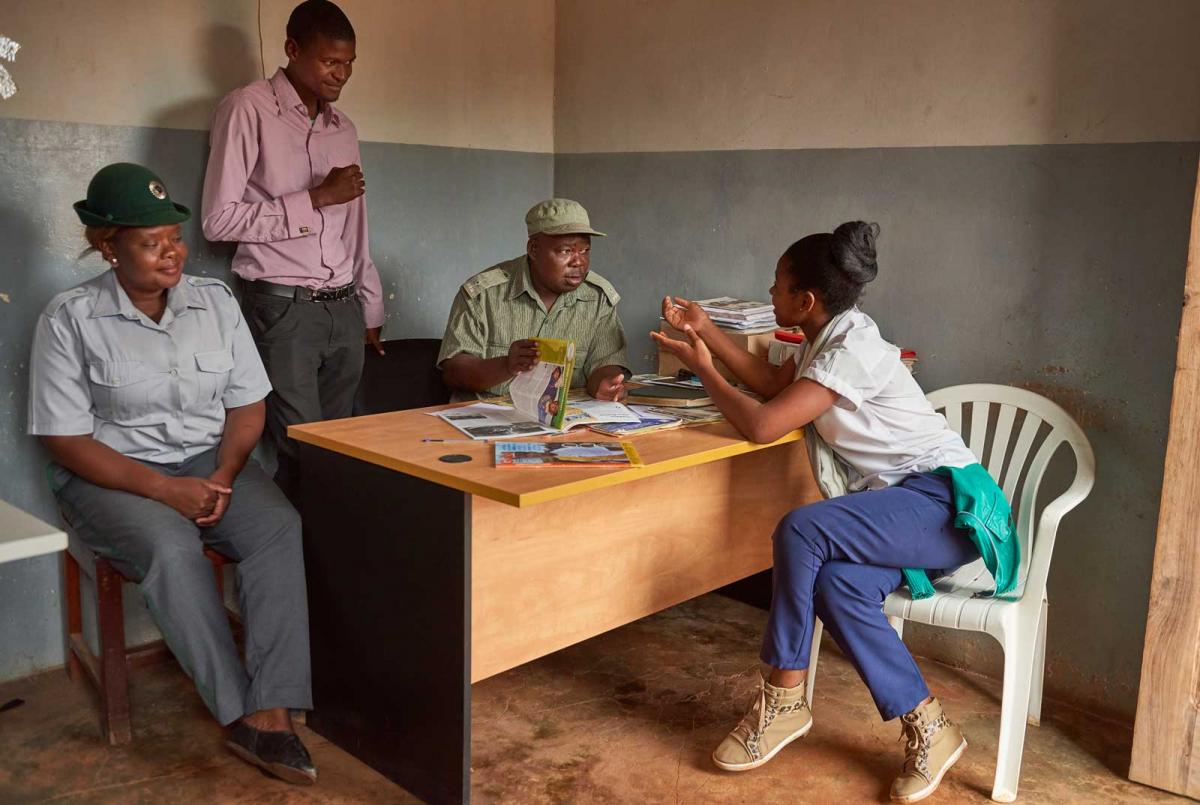
Authorities need knowledge - this Child Rights Ambassador in Mozambique shares information about the UN Convention with local police.
Talking to local leaders and people in charge, like the police, is important for young changemakers. Some have even taken their complaints and ideas to both local decision-makers and national governments in their country! Visit your local decision-makers and tell them about children's rights and the importance of listening to young people. Some adults do not even know that children’s rights exist and that your country has promised to respect them. Perhaps you can also learn from their experiences. Working together can make things better in your community.
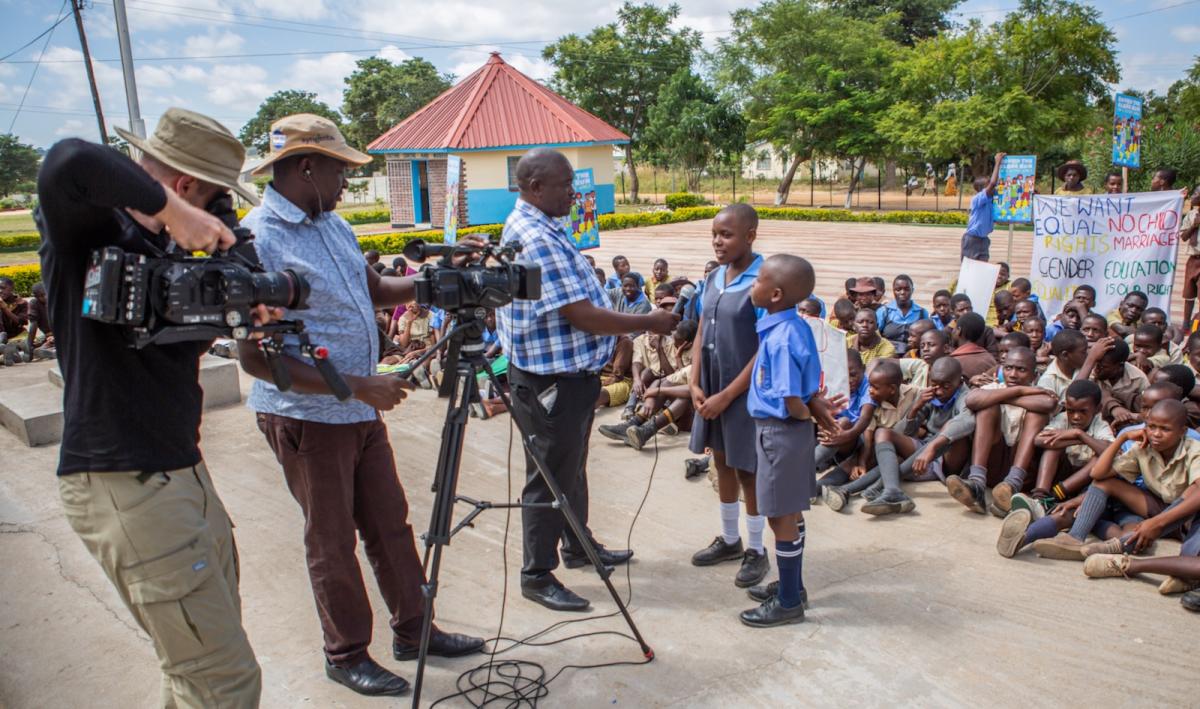
Being interviewed by the media, like here in Zimbabwe, is an effective way of reaching many people with information about children's rights.
The media, including newspapers, radio, TV, and the internet, is a powerful tool for spreading the word about children's rights. It reaches a wide audience, bringing important issues to light.
Talking to newspapers, radio, or TV is a good way to let lots of people know about children's rights. Sharing your own stories and the changes you want to see can

A group of newly minted Child Rights ambassadors in Hanoi, Vietnam.
You can use what you've learned to teach more children how to be changemakers. Get your friends together, share your knowledge, and talk about how you are treated where you live. Then everyone can share what they know with their families, neighbours, at school, and on social media. Discuss what changes you want to see and plan how to reach them together.